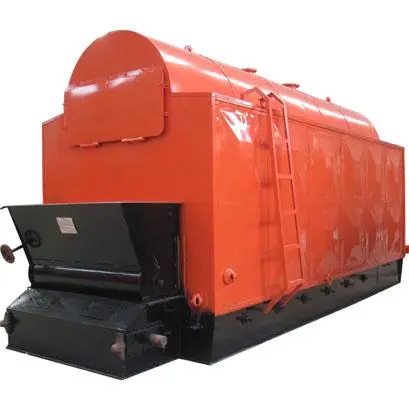
Nov . 10, 2024 16:00 Back to list
Efficient Coal-Fired Hot Water Boilers for Heating Solutions and Energy Savings
The Role of Coal-Fired Hot Water Boilers in Energy Production
Coal-fired hot water boilers have been a significant part of the energy production landscape for many years. They are primarily used in industrial applications, commercial establishments, and residential settings to provide steam and hot water for heating purposes. Despite the growing focus on renewable energy sources, coal remains a key player in the global energy mix, particularly in regions where other fuel alternatives are limited or economically unfeasible.
How Coal-Fired Hot Water Boilers Work
A coal-fired hot water boiler operates on a relatively straightforward principle. Coal is burned in a combustion chamber, producing heat. This heat is transferred to water within a heat exchange system, converting the water into steam or heated water. The hot water or steam then travels through pipes to radiators, heating systems, or processes that require hot water.
The efficiency of these boilers can be enhanced through various technologies, including economizers, which recover residual heat from the flue gases, and advanced control systems that optimize fuel-to-air ratios. Despite their efficiency, it’s essential to recognize that coal-fired boilers face criticism due to their environmental impact, particularly concerning carbon emissions and air pollutants like sulfur dioxide and nitrogen oxides.
The Importance in Industrial Applications
Industrially, coal-fired hot water boilers are vital for various processes, including food processing, textile manufacturing, and chemical production. Many of these industries rely on hot water for cleaning, sterilization, and other thermal applications. The ability of coal boilers to deliver large volumes of hot water consistently and economically makes them indispensable in sectors that require stable energy supplies.
In regions with abundant coal reserves or where coal mining provides significant economic benefits, coal-fired hot water boilers remain a pragmatic choice. They offer a reliable source of energy and contribute to job creation within the coal industry and associated sectors.
coal fired hot water boiler

Environmental and Regulatory Challenges
Despite their advantages, coal-fired hot water boilers encounter substantial environmental scrutiny. The combustion of coal is known to release significant amounts of carbon dioxide (CO2), a greenhouse gas contributing to climate change. Additionally, the emissions from these boilers can lead to the creation of smog and acid rain, which have detrimental effects on air quality and public health.
To address these concerns, many countries have implemented stringent regulations on emissions from coal-fired boilers. Technologies such as flue gas desulfurization (FGD) and selective catalytic reduction (SCR) have been developed to reduce harmful emissions. The effectiveness of these technologies varies, and the cost of retrofitting existing coal-fired boilers can be prohibitively expensive for some operators.
The Future of Coal-Fired Hot Water Boilers
As the world increasingly pivots toward sustainable energy sources, the future of coal-fired hot water boilers is uncertain. The push for decarbonization is prompting many regions to move away from coal in favor of cleaner alternatives like natural gas, biomass, or even electric heating systems powered by renewable energy sources.
However, in the short to medium term, coal-fired hot water boilers are unlikely to disappear entirely. In developing nations, where energy access remains a significant challenge, coal may still provide an immediate and affordable solution for heating needs. Transitioning to cleaner sources of energy requires significant investment in infrastructure, technology, and training, a process that cannot occur overnight.
Conclusion
In summary, coal-fired hot water boilers play a crucial role in energy production, especially in industrial and certain residential contexts. While they offer reliability and economic advantages, the environmental implications of coal combustion cannot be overlooked. As nations grapple with the challenge of balancing energy needs with climate commitments, the future of these boilers will depend on regulatory changes, technological advancements, and shifts in energy policy. The transition to cleaner energy sources will be imperative in shaping the next chapter of energy production, potentially phasing out coal while ensuring that industries and communities still have access to the necessary heating solutions.
-
High-Efficiency Commercial Oil Fired Steam Boiler for Industry
NewsJul.30,2025
-
High-Efficiency Biomass Fired Thermal Oil Boiler Solutions
NewsJul.30,2025
-
High Efficiency Gas Fired Thermal Oil Boiler for Industrial Heating
NewsJul.29,2025
-
High-Efficiency Gas Fired Hot Water Boiler for Sale – Reliable & Affordable
NewsJul.29,2025
-
High Efficiency Biomass Fired Hot Water Boiler for Industrial and Commercial Use
NewsJul.29,2025
-
High-Efficiency Biomass Fired Hot Water Boiler for Industrial Use
NewsJul.28,2025
Related PRODUCTS






















